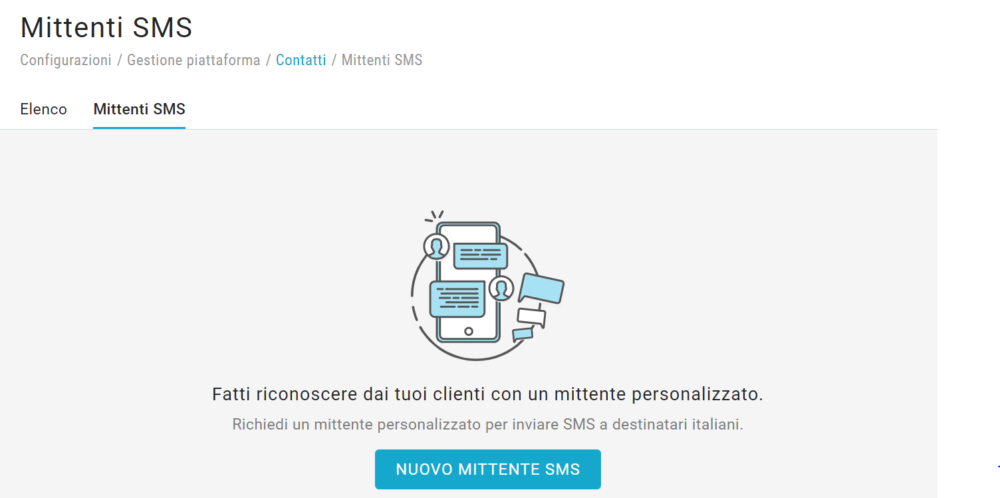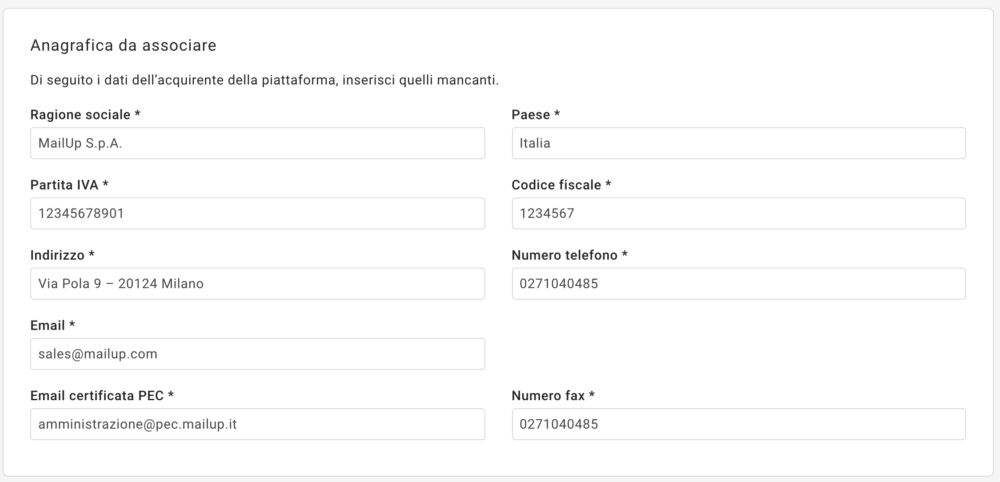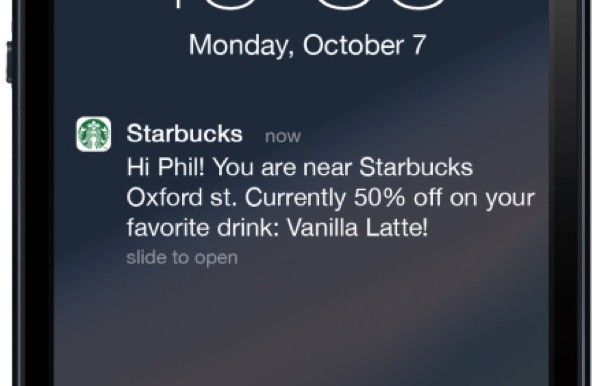Personalizing SMS Marketing: 5 best practices to give your mailing that personal touch

Users really appreciate SMS as a tool: about 91% of consumers are interested in receiving SMS messages from companies, while about 66.5% wanted to subscribe to new SMS Marketing programs in 2020. The excellent performance and its steadiness along the years show this channel’s power. Its average open rate is 98%, and the engagement rates are six to eight times higher than emails.
Let’s cross these data with recent statistics on personalization: 72% of consumers interact only with personalized messages and 80% only buy from brands that personalize the user experience. Therefore, it’s easy to understand that customization is vital not only for email but also SMS campaigns.
So here you are with 5 best practices to immediately integrate your SMS Marketing strategies in a way that won’t disappoint your recipients

From developing integrations to strategic support, from creating creative concepts to optimizing results.
1. Customize the sender name with aliases
What are aliases, and what’s their function?
Aliases are corporate SMS/MMS alphanumeric indicators that identify the calling subject and are used instead of telephone numbers.
Aliases customize the sender ID by replacing the telephone number with a textual identifier, e.g. the name of the company.
Their strategic use in marketing makes the sender immediately recognizable, facilitating the likelihood that the recipients read the message and click on it.
Just as in Email Marketing, the role of the sender ID is key and shouldn’t be underestimated. The clearer and more recognizable the sender, the more the recipient’s trust. This means more propensity to open the message and interact with its content, making a conversion more likely.
However, the benefits of aliases are not limited to reputation and reliability: they guarantee an additional level of personalization to your mailings. As we’ll see later, starting a conversation by calling the recipient by name makes the approach less cold and detached. Likewise, providing your identity to those who receive your messages makes the dialogue more personal and intimate.
How to use aliases with SMS texts in Italy
When dealing with a text identifier, your possibilities depend on the nationality of your recipients:
- in the case of Italy’s area code, you must comply with the regulations envisaged by Resolution no. 42/13/CIR of Agcom (Communications Guarantee-Authority) and its subsequent updates; and
- in all other cases, you can use a text identifier up to 11 characters long.
What are the Agcom rules?
They establish that the VAT number and Tax Code are mandatory to register and use an alias, subject to approval by Agcom. The registration and authorization of a textual identifier can only be requested through professional and certified sending platforms like MailUp.
What characters are allowed for aliases?
The textual identifier must be composed of a maximum of 11 characters (both lower and upper case of the letters of the international alphabet, plus digits from 0 to 9). The first character can’t be a number and spaces aren’t allowed.
How to register your textual identifier with MailUp
The MailUp platform allows you to register your alias and receive Agcom’s approval in using a textual identifier to text Italian recipients.
MailUp manages the entire authorization process of the textual identifier. Just launch the request procedure in the SMS identifiers section of the platform (Settings > Platform management > Contacts > SMS identifiers).

Click on New identifier and fill out the approval request with the following information:
- the customized textual identifier; and
- the MailUp platform’s buyer’s details.

For using an identifier different from your company name and brand, add an authorization to the previous information so that you can text on behalf of a third-party brand. In fact, the law requires you to demonstrate that you can use a brand name other than yours. The MailUp platform also makes this authorization step really simple:

Upon submission, MailUp will carry out preliminary checks and take care of managing the identifier authorization process. You can follow the application process directly on the platform, monitoring the various approval statuses.
Once your alias has been approved, you’ll be able to enter the textual identifier in the dedicated field when creating the SMS:

2. Use dynamic fields
Dynamic fields are a simple yet extremely effective way to further personalize the SMS. It establishes a more direct and informal relationship with the recipient.
Only a professional sending platform like MailUp can provide this small but precious support. You can automatically enter details, e.g. the user’s name at the start of the message for a more personal greeting.
Their use isn’t limited to just “Hi [name]”. Take advantage of a large variety of data, from personal and professional details to info on interests and preferences. This will allow you to not only establish a more intimate conversation but also alert the customer to a time change, the shipment of an order, or an appointment reminder.
[company name], [city], [ZIP code], [last order date], [total in the abandoned cart], [date of birth], and many more: click on the Dynamic fields button when creating the message on the platform, customize the dynamic tags you intend to use, and report them in the message’s text while respecting their syntax (e.g. [name]).
The Dynamic fields menu lets you set a default field to complete the dynamic tag when the relevant information is missing from the database (e.g. Dear [name] > Dear customer).

3. Segment your mailings by filters
Personalizing your SMS Marketing strategies also means sending the right message to the right recipient. This is why we always suggest carrying out the segmentation activities that you normally do for your email campaigns before sending. Set up the sendings based on the preferences, activities, interests, and personal details of each contact and avoid annoying your users with irrelevant texts. In fact, segmentation will limit the number of unsubscriptions, safeguard the relationship with your audience and the brand image, as well as save on sending costs.
To segment your sendings, MailUp offers you numerous campaign-customizing filters. Find a wide selection of different types of filters on the platform:
- personal details, such as age, profession, and gender. This type of filter is useful, for example, to selectively send new men’s and women’s clothing collection campaigns or to inform younger users only about company initiatives on social media networks.
- behavioral, i.e., relating to users’ purchasing habits. These types of filters let you create SMS campaigns targeting customers who haven’t made a purchase in a long time, or offer promotions of related products to loyal users.
- geographical, which are vital when texting about events or offers limited to some stores. The segmentation that uses geolocation data, also called geotargeting, allows for directing communications only to recipients within a specific geographical area. Complementary technologies can boost its pros. For example, beacon detects the proximity to a certain place or to a physical store and triggers a text with a high degree of customization like this:

Go further and make your communications even more relevant. Collect information on preferences, lifestyle, and interests by asking recipients directly through a simple questionnaire. Create a landing page with MailUp and request the data you want to use for your customized mailings via a form. It’s easy: insert the link to the landing page directly in your text messaging.
4. Don’t limit your needs to 160 characters: take advantage of chained text messages
If you need to create more specific and comprehensive personalized text messages, then go beyond the single-SMS 160 characters by sending chained messages.
MailUp lets you chain up to 10 text messages and have as much as 1,530 characters available (670 in the case of non-Western alphabet).
No more distress about condensing all the information you want to transmit to your recipients in a set character limit! Take advantage of the SMS channel for even longer and more detailed communications.
5. Give your messages a human touch
Don’t forget the importance of the message’s register and style: dynamic fields and a customized identifier are important personalized elements. But whatever your effort, they can’t help a cold and rigid tone. Avoid any “corporate style” and all those abbreviations and technicalities that distance the recipient and make the dialogue too formal. Choose a conversational and direct tone to engage your contacts in a familiar and authentic conversation.
Conclusions
Our 5 tips are meant to boost your SMS campaigns and leverage the full potential of this channel through personalization.
Use these best practices and discover the full potential of the platform to send your text messages without fees or fixed costs. You’ll pay only for what you send.